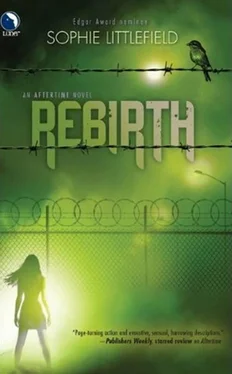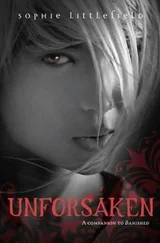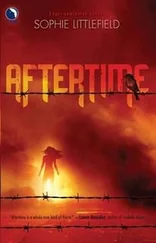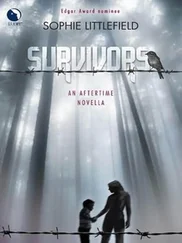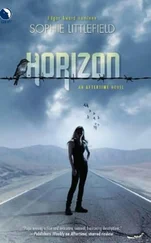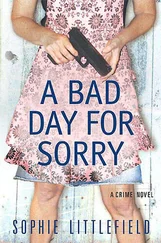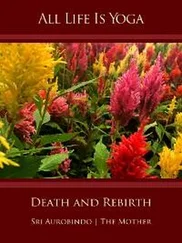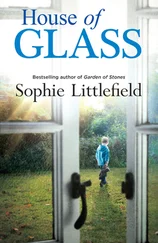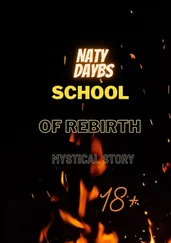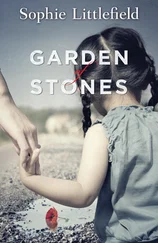The Beaters also learned. By early summer they were banding together in small groups and dragging their prey away so they could feast in peace. Soon after that, they started sheltering together, and it wasn’t long before they learned to seek out locations where they were hidden from passersby but could get out quickly to attack; they favored storefronts and other buildings where the glass had shattered, where there was a single way in and out.
Get enough armed people together and you could overwhelm and destroy a nest of even several dozen Beaters. But few were willing to risk up-close contact since the disease was saliva-borne, meaning that not only bites but spit in an eye or wound could also infect. A simple gunshot or blow to the head was not a reliable means of debilitating them in the short term: though they might eventually collapse and die, their attenuated strength and surging adrenaline meant that rage would propel them forward for some brutal minutes yet. And everyone feared inciting a swarm of the cracked, bloody things.
It was these memories-this new common knowledge-that flitted through Cass’s mind, even as she tried to doze, her arm slung over the back of the seat so that she could hold Ruthie’s warm hand. She tried concentrating on the passing scenery, but her mind kept going back to the terrible days after everything fell apart and the survivors began to realize that no one was going to come and make things right. It had been worse, then, when it was still possible to forget occasionally-when you’d wake up and, for a moment, imagine you smelled coffee or that you heard the rumble of the recycling truck and the shouts of children on the way to school.
It had been a long time since the waking nightmare gave her even a day of peace. Traveling with a man who despised her, headed away from the trouble she knew and toward the trouble she didn’t-that was not likely to change.
When the sun slipped down to touch the mountains behind them, Dor finally spoke. “We’re more than halfway. Somewhere short of Glover, I think, but I don’t want to get too close to town. Hopefully all the local critters are already on the move.”
“You mean you think they’ve all gone toward the towns?”
“That, or heading south…if that’s really happening.” He sounded doubtful. The day had been warm, and Cass herself wondered if the cold nights alone would be enough to stir the Beaters’ instincts, if indeed self-preservation spurred them to find a better climate. Even the coldest days in California’s central valley rarely got below freezing, hardly a threat if they managed to take even a few simple measures to stay warm. What was to prevent the Beaters from burrowing into their nests together to share body heat and deciding that was enough?
When they saw a ranch house set up on a gentle slope a half mile away, Dor turned down the drive. He drove slowly, tires crunching against the gravel, and as they got closer Cass saw the swing still suspended from the branches of an old oak in the front yard, the hand-painted sign in the shape of a tractor that read The Vosses. Dor parked on the concrete pad near the garage and told her to stay put while he checked around. Cass tensed at the thought of being alone with Ruthie, even for a moment, but there was nothing for it. She took her blade from her belt, and made Ruthie lie down in the backseat so that she would be invisible to anyone approaching the car.
But all around them were treeless fields, save for the oak and a stand of what must have been some sort of ornamental specimen-magnolia, perhaps-leafless and barren, and a pair of old fruit trees which were covered, incongruously for the season, with pale green shoots. That captured Cass’s attention for a second and she had a vague thought that if they lived until morning, she would have to come outside and examine them.
They were surrounded by grazing fields. Cattle ranches dotted the Sierra foothills on the other side, west of the mountains, when she had grown up. Stock herds of cows grazed their way on a rotation of the fields, gentle skittish beasts that produced new crops of calves every summer for Cass to admire on her runs out into the country. Now there was no evidence of the animals. They’d been felled early in the bioterror attacks-second only to pigs-so many and so quickly that troops had been diverted and later conscripted to haul and torch the carcasses. There were huge burn sites throughout California: smoke hung over the huge feedlot operations along I-5 for weeks as the meat burned. The barking of the dogs over the smell was never-ending. Until, eventually, it was truckloads of dogs and deer that joined the cattle-and, finally, the two-legged dead.
After a tense few minutes Dor was back, coming through the garage door which he had hauled up by hand.
“Drive it in here,” he called, and Cass slid awkwardly over the console to the driver’s seat. She turned the key in the ignition, a strange sensation after such a long time, and put her foot on the gas pedal. She checked the gauge: three-quarters full. Drove slowly up into the garage and turned it off again, Dor already pulling the steel door back down. The garage smelled slightly of rot, though it wasn’t overwhelming. Dor had his flashlight on, and while Cass unbuckled Ruthie from the back, he got a few things from the cargo area.
Inside, the house was cold but surprisingly tidy. The garage opened onto a kitchen whose cabinets hung open and empty-raiders had been here. A few Splenda packets spilled onto the counter and there were bottles of soy sauce and vinegar, sticky and nearly empty, but otherwise the food was all gone. Dishes were still stacked neatly, coffee cups hung from hooks and good crystal goblets were lined up with care on a bed of paper toweling. The rot smell was stronger at the refrigerator but there was nothing to be done about that; everyone knew never to crack a refrigerator door anymore. Someday nothing would remain inside but dried-up crumbs, but until then the fear of refrigerators was up there with basement doors.
Dor set the supplies down on the kitchen table: a bottle of water, a tight-wrapped square of spongy kaysev curd, a Tupperware container of almonds. One of the cans of fruit cocktail from the farmhouse. As he went systematically through the drawers and lower cabinets, an unshakable habit for anyone who’d served on a raiding party, Cass and Ruthie wandered through the house.
In the den an enormous television took up most of one wall; shelves on either side held houseplants that had dried to husks long ago, as well as trophies and photos in frames. Cass turned on her own hand-crank flashlight and saw that the trophies were from an adult softball league and most of the photographs were of several towheaded children. Grandchildren, Cass guessed. This didn’t feel like a house where little ones had lived. There were no toys on the floor, no high chairs in the kitchen.
There was a plaid sofa with knitted afghans folded neatly over the arms, a basket on the coffee table filled with skeins of blue and white yarn. A newspaper, neatly refolded, with a coffee cup skimmed with mold on top.
The living room was comfortable and ordinary, but Cass noticed that one of the armchairs had been dragged down the hall to block the last door. A raiders’s trick: when they found something too awful to abide looking, they blocked doors with furniture, a simple courtesy to those who came after. But the drag marks on the carpet were fresh-it was Dor, then, who was trying to protect her and Ruthie.
“We can use the guest bedroom tonight,” Dor said. “First door on the right. Bathroom’s on the left.”
Cass glanced back at the chair blocking what was apparently the master bedroom door, wondering what Dor was shielding her from seeing. It could be any of half a dozen familiar scenarios. The couple who lived here might have overdosed in their bed, that was the favorite for anyone who’d had the foresight to stockpile medication. Or the husband might have shot the wife and then turned the gun on himself. For those with no gun or drugs, things were messier; most people did a poor job of cutting their own wrists and took forever to die, leaving their beds soaked a bright red that slowly dried to dirt brown and earthen black if you found them much later.
Читать дальше
Конец ознакомительного отрывка
Купить книгу
